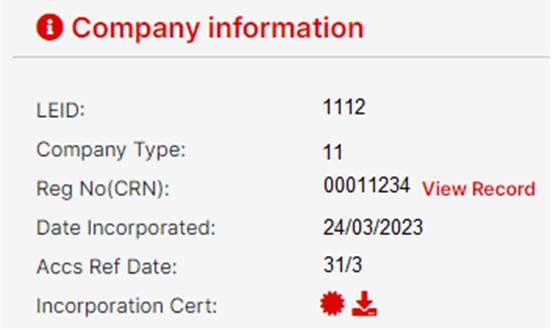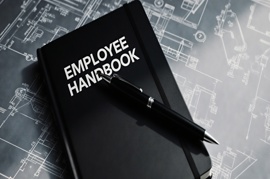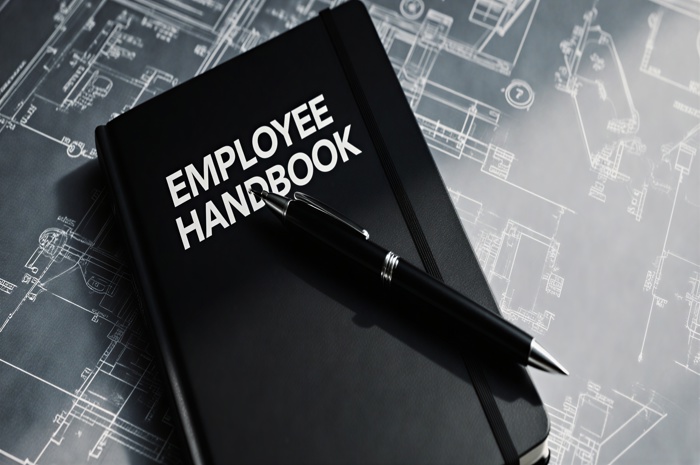Deciding to incorporate a limited company is complex, with various factors to consider. Post-incorporation, the company becomes its own legal entity separate from the Director, introducing added regulations. You can find out more about Directors in our article What is a Company Director, and what do they do? But does the date of incorporation actually matter? Let's discuss the main points with regards to incorporation date and why is it important.
Company incorporation, and dates to be aware of
To legally register as a UK limited company, entities must go through Companies House, as mandated by the Companies Act 2006. The incorporation date is when it's registered, visible on the Companies House register. If you are just starting your entrepreneurial journey, you can choose your date of incorporation so that it aligns with the UK's Financial/Tax year for companies (running from 1 April to 31 March each year) or with the nature of your business and key seasonal fluctuations that may affect the financial data. If you decide to incorporate a company with us, once we have checked your company for compliance and submit your application electronically to Companies House, the company is normally processed and incorporated within 24 hours.
After the successful registration, however, you will need to be aware of a few important dates:
- Accounting reference date: It is the last day of the month in which your company was registered with Companies House and typically companies are required to submit annual accounts made up to this date once a year.
- Confirmation statement due date: Every company, this includes dormant and non-trading companies must file Confirmation statements every 12 months as this confirms the information held by Companies House for a company. The 12 month period is also called a 'Review period' and it either starts on the date of incorporation or the date you filed your last confirmation statement.
- Filing due date to Companies House for your company's first year: After successful incorporation the filing due date with Companies House is 21 months, for example if a company is incorporated on 24 March 2023 first accounts will be due by 24 December 2024.
- Filing due date with HMRC for your company's first year: You have 12 months after the accounting period end date to submit filings to HMRC. As first periods are usually extended by Companies House (cover more than 12 months) HMRC may require an additional CT600 (corporation tax return) to be submitted, so that the full accounting period is covered. Taking into account our example above for the period 24 March 2023 to 31 March 2024 - the first accounting period for corporation tax will cover 24 March 2023 to 23 March 2024 and submitting filings for it will be due by 23 March 2025, and for the second period for Corporation tax from 24 March 2024 to 31 March 2024 submissions will be due by 31 March 2025.
Financial (Tax) year end and tax implications
The date of incorporation determines the start of the business' accounting period as well as its end, meaning that this will have an effect on the financial reporting, taxation and due dates for filing. For instance, if you choose to incorporate your company on 1 May 2024, typically the accounting reference date of your company will be extended to 31 May 2025 and this will fall into two tax years:From 1 May 2024 to 31 March 2025 it will fall in the 24/25 Financial year from 1 April 2024 to 31 March 2025.
then from 1 April 2025 to 31 May 2025 it will fall in the 25/26 Financial year from 1 April 2025 to 31 March 2026.
If this date is not changed going forward, the company's accounting periods will run from 1 June to 31 May every year (the accounting reference date will remain the same).
Let's look at the case when a business is incorporated on 24 March 2023. The first accounting period will run from 24 March 2023 to 31 March 2024 which falls into two tax years in the first accounting period, but then subsequently the periods will start on 1 April and end on 31 March (aligned with the UK's tax year for companies) and fall into just one tax year.
Change of dates
Once the incorporation process has finished, you will not be able to change your incorporation date. However, you can change your company's accounting reference day, so that it runs for more or less than 12 months. This will also affect the filing deadlines for filing accounts, unless lengthening the company's first accounting period. It is important to take into account the rules on changing the company's ARD before doing so. You can shorten the company's accounting period as many times as you would like, and the minimum period for that is shortening by one day (for instance, if period finishes on 31 May, to shorten it to 30 May). On the other hand, if you would like to lengthen your company's period, this can be done only once every 5 years to a maximum of 18 months (or more if in administration).
If you would like to alter your company's accounting reference date, you will be able to do this online via the WebFiling service. Alternatively, you will need to complete the AA01 form and send by post.
Trading, and can you start immediately after incorporation?
Once a company is incorporated with Companies House, trading activity can start straightaway. However, if you decide to keep your company as dormant, that will be absolutely fine too. Companies may choose to delay trading until the company has its own business bank account, so that all the incomings and outgoings will be considered as the ones of the business.
Where to find a date?
The company's incorporation date can be found by many different means; for example, searching the Companies House register or it can be found on the Certificate of Incorporation. If you have incorporated your company with us, you will also be able to see the incorporation date as well as your Incorporation certificate in your EasyDigital account under 'Company information'.

Once your company has been successfully incorporated, there are indeed lots of different factors to think about. That is why we recommend keeping your information as organised as possible in your EasyDigital account. What to expect to be visible once logged on:
• ‘Company’s registration number’
• ‘Date of incorporation’
• ‘Accounting reference date (ARD)’
• ‘Company’s registered address’
• ‘Company’s authentication information’
Key after incorporation information
It is important to note that after incorporation, you will need to open a separate business bank account for your company separate from your personal and business funds, as you are now two separate legal entities. Furthermore, if you intend to employ people, you will have to register your company for PAYE. You will also need to register for corporation tax services and VAT if you expect your company to go above the £85,000 VAT registration thresholdIf you wish to find out more about how the date of incorporation can affect your filing deadlines, have a look at our related video on why your incorporation date matters:





















